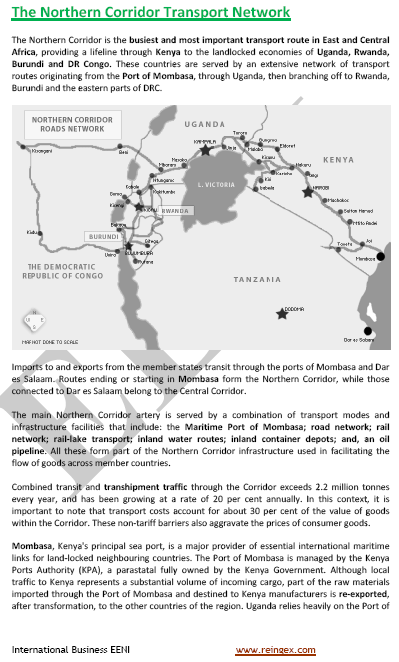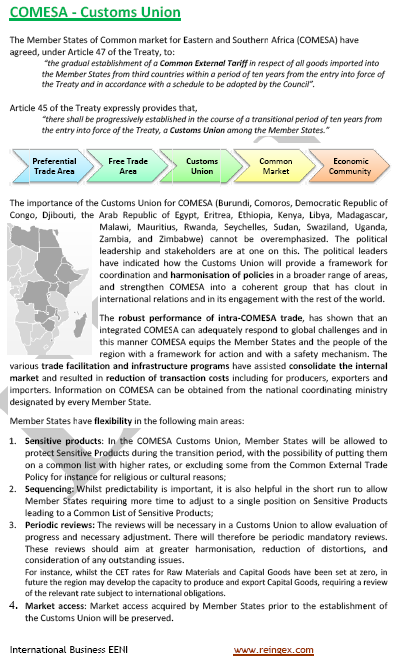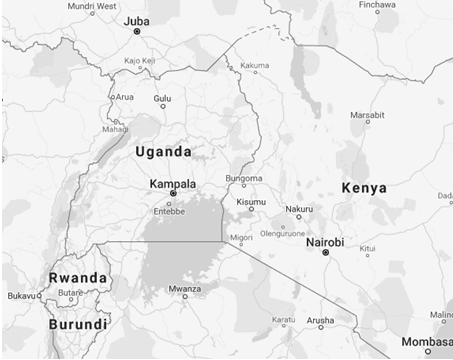Trade in Uganda, Kampala, Kira
Transport and Foreign Trade in Uganda, Kampala, Nansana, Kira. Great Lakes

Uganda (Republic of Uganda, «the pearl of Africa») is an Eastern African landlocked country
- Jamhuri ya Uganda in Swahili
- Kampala is the economic, political and administrative capital of Uganda and the largest Ugandan city
- Largest cities of Uganda: Kampala (Nansana, Kira, Makindye-Ssabagabo, Mukono), Mbarara, Gulu, Lugazi, Kasese and Masaka
- Uganda is one of the most dynamic African Frontier Markets
- Main Ugandan economic activity: agriculture (sugar cane, cotton and sweet potato)
- 80% of Ugandans live on agriculture
- Uganda is the second African coffee producer (15% of the Ugandan exports, behind Ethiopia) and tea
- Main Ugandan mineral resources: copper, cobalt, hydroelectric power...
- Currency of Uganda: Ugandan shilling (UGX)
- Uganda share borders with Kenya (814 kilometres), Rwanda (172 kilometres), the DR Congo (877 kilometres, Goma), South Sudan (475 kilometres) and Tanzania (391 kilometres)
Logistics and Transportation in Uganda

 Ugandan Students from Uganda
Ugandan Students from Uganda



Trade and Business Organisations (Uganda).
- Intergovernmental Authority on Development (IGAD)
- East African Community (EAC)
- Common Market for Eastern and Southern Africa (COMESA)
- U.S.-COMESA Agreement
- COMESA-EAC-SADC Agreement
- Nile Basin Initiative
- Conference on the Great Lakes Region

- African Development Bank
- African Union
- AUDA-NEPAD
- Economic Commission for Africa
More information: International Trade and Business in Uganda, at EENI Global Business School Website.
- Ugandan Population: 42 million inhabitants
- One of the fastest growing populations in the world
- Population density of Uganda: 141 inhabitants/km²
- Uganda belongs to the Great Lakes and the Nile Basin region
- The southern part of Uganda includes an important part of Lake Victoria, shared with Kenya and Tanzania.
- Climate of Uganda: equatorial
- Area of Uganda: 241,550 km²

- Calling code of Uganda: 256
- Country code top-level domain of Uganda: .ug
- Uganda is a Unitary Semi-Presidential Republic
- Uganda obtained the Independence from the United Kingdom in 1962
- Kingdom of Buganda (History of Uganda)
- The name of Uganda comes from the ancient Kingdom of Buganda
The four regions of Uganda are (population in a million people/area)
- Central region (Kingdom of Buganda) (9.5/61,400)
- Western region (8.8/55,276)
- Eastern region (9/39,478)
- Northern region (7/85,391)
Main Ugandan ethnicities
Ugandans belong to a unique cultural and linguistic group, the Banyarwanda, formed by three subgroups:
- Hutu (84% of the population of Uganda)
- Tutsi (15%)
- Twa (1%, Pygmies that live in the forests and descend from the first inhabitants of Uganda)

Religions and Global Business -
Religious diversity
Religions in Uganda:
-
Christianity (85% of the Ugandan population)
- Catholicism (40%)
- Protestantism (32%)
- Lord's Resistance Army
- Sunni Islam (14%)
- African Traditional Religions
Languages of Uganda
The official languages are English and Swahili
- Luganda is widely spoken throughout Uganda
- Others Ugandan languages are Runyoro, Runyankole, Rukiga and Luo.


 Tweet
Tweet


